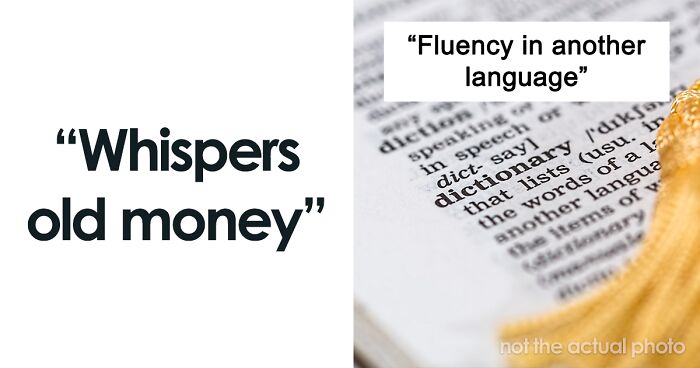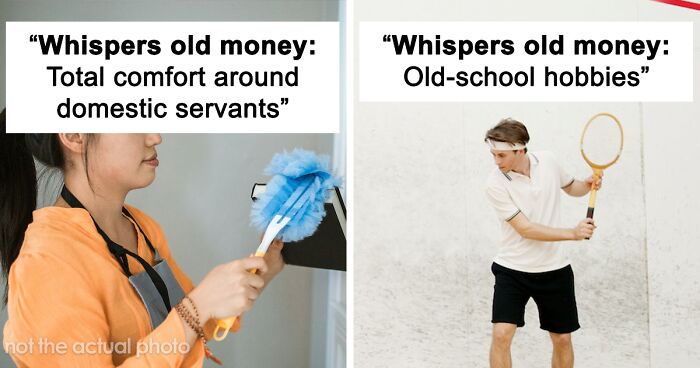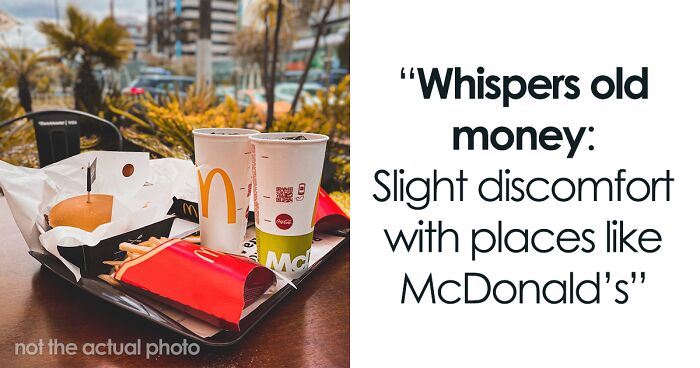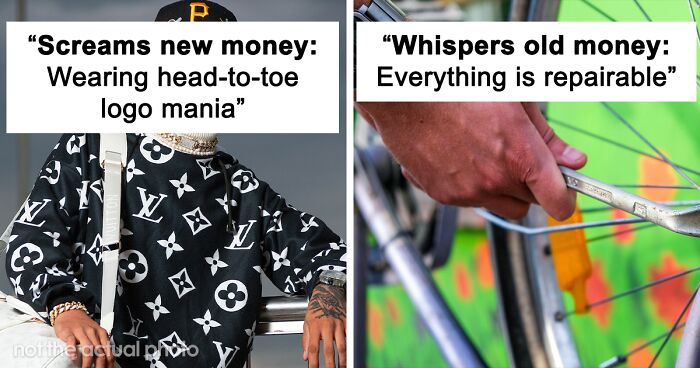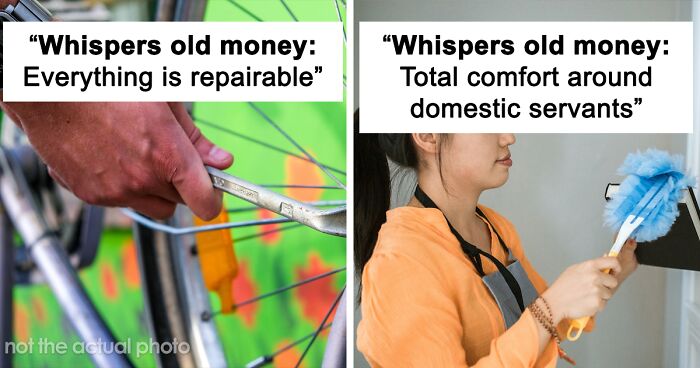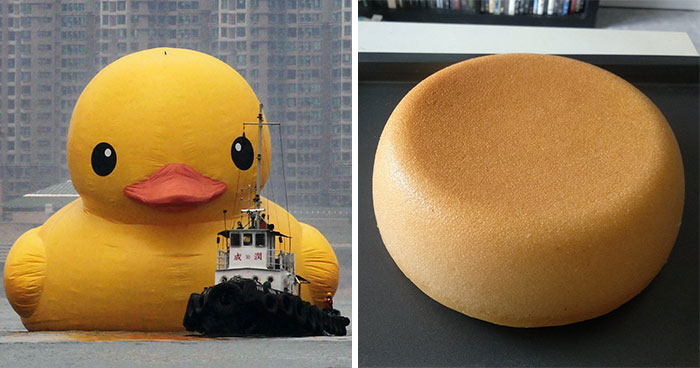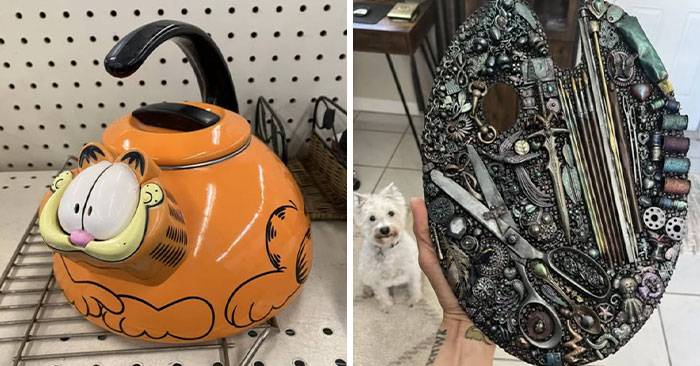
‘Old Money’ Vs. ‘New Money’: 45 Things That Help Define Where A Person’s Wealth Came From
In the world of the rich, there are those who were born into their wealth (old money) and those who made it themselves (new money). And while both enormously wealthy twentysomething aristocrats and entrepreneurs share some qualities of those who have been swimming in infinite riches since they started breathing, there are subtle and not-so-subtle differences that people have picked up on.
From flashing your excessive wealth to being rude to people who millionaires pay for backbreaking work, there are some eye-opening hints of what kind of millionaires we're dealing with. Not that it makes any difference to what we think of them.
This post may include affiliate links.
 WHISPERS OLD MONEY: "The one thing I learned from the wealthiest woman I ever knew: Everything is repairable. Throwing out broken things is a sign of middling wealth. My dad was a furniture upholsterer and carpenter and made scads of money off of rich old people who didn't want to part with things and were willing to hire a professional in a field rarely heard from to fix something older than they were, rather than go to Ikea and get a replacement.
WHISPERS OLD MONEY: "The one thing I learned from the wealthiest woman I ever knew: Everything is repairable. Throwing out broken things is a sign of middling wealth. My dad was a furniture upholsterer and carpenter and made scads of money off of rich old people who didn't want to part with things and were willing to hire a professional in a field rarely heard from to fix something older than they were, rather than go to Ikea and get a replacement.
They can afford to get them repaired professionally and their things cost a lot of money. For the rest of us, it’s cheaper to get it replaced.
Once upon a time, a cool $1 million was the epitome of making it. It unleashed a frenzy, summoning hordes of eager individuals to queue up outside corner stores and supermarkets in hopes of snagging seven-digit lottery jackpots. Journalists volleyed questions at fortunate winners, probing into the intricate details of their plans, while the rest of us dreamed it could be us one day. No surprise why TV programs like "Who Wants to be a Millionaire?" were a big hit.
Millionaires, a rare breed, were drenched in an aura of fascination, their extravagant lifestyles imbued with an air of allure. These affluents luxuriated in the finest culinary establishments, donned garments oozing with unbridled fashion, zoomed around town in pint-sized, zestful sports cars, and resided in grandiose mansions that whispered tales of extravagant living. By the '90s, there were only about 60,000 millionaires in the US. Today, this number is as high as 21.9 million US residents, meaning that about 8.8% of America's adult population has "made it."
However, with inflation and whatnot, $1 million is not that big of a deal no more, it turns out. According to Forbes, one must rake in no less than an eye-watering $597,000 per year and amass $11.1 million to secure a position among the privileged top 1% of American society.
As Andrew Gelman, a professor of statistics and political science at Columbia University, once noted: "It used to be that a millionaire was someone with a million dollars. Nowadays, though, the term is often used to refer to people who make a million dollars a year."
 SCREAMS NEW MONEY: "Big new homes and expensive new cars. New money buys big new homes and expensive new cars. Old money keeps the older home and the older car, but both are in pristine condition, and it is a point of pride
SCREAMS NEW MONEY: "Big new homes and expensive new cars. New money buys big new homes and expensive new cars. Old money keeps the older home and the older car, but both are in pristine condition, and it is a point of pride
This isn’t really fair. Do you think when “old money” were new, they didn’t do the same thing? Look at the old mansions that were built by the newly rich centuries ago. They’re hideously big and gaudy too! And I’m sure they flaunted their wealth to everybody. Their descendants have years and years of getting used to their wealth and having brought up with proper manners and etiquette so they don’t act like “new money.” Trust me, all these new money people’s descendants will also act properly a few generations down the line. So it’s really not fair to compare the 2.
 WHISPERS OLD MONEY: "No conscious need to show off their wealth. I went to an Ivy League school as a middle-class kid, and I ended up meeting a lot of friends from old money families. Truly old money families do not care about brand names, and they do not go out of their way to buy flashy, branded items. Being dressed from head to toe in visible brands is considered somewhat tacky. They focus on owning quality items that are more timeless and less flashy or trendy; many of their garments and accessories are bespoke or tailor-made, especially men's suits. Open snobbery about wealth was something I saw more in middle-class circles — the upper classes were far less insecure.
WHISPERS OLD MONEY: "No conscious need to show off their wealth. I went to an Ivy League school as a middle-class kid, and I ended up meeting a lot of friends from old money families. Truly old money families do not care about brand names, and they do not go out of their way to buy flashy, branded items. Being dressed from head to toe in visible brands is considered somewhat tacky. They focus on owning quality items that are more timeless and less flashy or trendy; many of their garments and accessories are bespoke or tailor-made, especially men's suits. Open snobbery about wealth was something I saw more in middle-class circles — the upper classes were far less insecure.
According to the findings of business theorist Thomas Stanley, a remarkable 80% of millionaires in the United States have forged their fortunes through hard work and entrepreneurship rather than relying on inherited wealth. This can also be traced by inspecting the evolution of the Forbes 400 list.
Most individuals on the list, it turns out, did not inherit the family business but rather made their own fortune. One particular research sheds light on this phenomenon, revealing that a significant 69% of individuals featured on the Forbes list in 2011 had ventured into entrepreneurship and established their own enterprises, compared to the 40% recorded in 1982.
 WHISPERS OLD MONEY: "Family heirlooms are extremely important. An engagement ring is an old heirloom from a wealthy grandparent, not something new and flashy. The newly wealthy received brand-new diamond stud earrings for a 16th birthday; the old money received Grandma’s gold pendant that had been in the family for generations.
WHISPERS OLD MONEY: "Family heirlooms are extremely important. An engagement ring is an old heirloom from a wealthy grandparent, not something new and flashy. The newly wealthy received brand-new diamond stud earrings for a 16th birthday; the old money received Grandma’s gold pendant that had been in the family for generations.
My great grandmother's wedding ring has been in my family since forever💍
 I've worked in very expensive restaurants, and old money people are polite AF. They stand when their elders arrive, leave, or use the bathroom. Louis Ward's widow is an example. Not super-old money, but they got rich on Russell Stover's. They didn't flaunt their money and usually treated me very well. They tipped cultural standard and no more, no less. Never ordered a bottle of wine that cost more than $140 and discussed it as if they knew what they were talking about. They all spoke very quietly, and everyone shut the hell up when the matriarch spoke. New money people often have a chip on their shoulder about it.
I've worked in very expensive restaurants, and old money people are polite AF. They stand when their elders arrive, leave, or use the bathroom. Louis Ward's widow is an example. Not super-old money, but they got rich on Russell Stover's. They didn't flaunt their money and usually treated me very well. They tipped cultural standard and no more, no less. Never ordered a bottle of wine that cost more than $140 and discussed it as if they knew what they were talking about. They all spoke very quietly, and everyone shut the hell up when the matriarch spoke. New money people often have a chip on their shoulder about it.
Standing up is absolutely not servile, it’s a cultural thing that exists in western but also in asian societies and it is indeed a social marker. Not just for elders, but also on a date for instance or even in business meetings.
To gain deeper insights into the intricate tapestry of affluent culture, Bored Panda reached out to 'Rich: The Rise and Fall of American Wealth Culture' author Larry Samuel, who ventured deep into the wilds of wealth culture in the US, documenting how rich people spend their time and money. "I found it very interesting that, even though they had a ton of money, millionaires (and billionaires, for that matter) still had to deal with the existential challenge that we all face—to find meaning and purpose in life," he said.
 WHISPERS OLD MONEY: "Not understanding the stress that comes from being poor or middle class. I jumped between poor and middle class as a kid and wound up going to college with a bunch of rich folk. If you talked about how stressed you were over paying the rent or having to eat tofu and spend hours on food prep, they wouldn't insult you about it or think less of you — but it was very clear they didn't understand the emotional weight of those problems. They could hear about your stress and just shrug it off because they didn't get what it's like to be financially insecure. Sometimes they'd even offer to help pay for a meal, but you could see the confusion in their faces when they picked up on the fact that you were still stressed, because they didn't realize you were now worrying about your next meal. Every so often, this disconnect would show up in more overt ways: They'd tell people abused at work to just quit their jobs, or tell kids on scholarship (me) to 'take a break from work and come party' — not realizing that you wouldn't be able to enjoy yourself knowing that you had a paper to finish, and that if you didn't finish it, you could drop a grade, lose your scholarship, and be unable to attend next semester.
WHISPERS OLD MONEY: "Not understanding the stress that comes from being poor or middle class. I jumped between poor and middle class as a kid and wound up going to college with a bunch of rich folk. If you talked about how stressed you were over paying the rent or having to eat tofu and spend hours on food prep, they wouldn't insult you about it or think less of you — but it was very clear they didn't understand the emotional weight of those problems. They could hear about your stress and just shrug it off because they didn't get what it's like to be financially insecure. Sometimes they'd even offer to help pay for a meal, but you could see the confusion in their faces when they picked up on the fact that you were still stressed, because they didn't realize you were now worrying about your next meal. Every so often, this disconnect would show up in more overt ways: They'd tell people abused at work to just quit their jobs, or tell kids on scholarship (me) to 'take a break from work and come party' — not realizing that you wouldn't be able to enjoy yourself knowing that you had a paper to finish, and that if you didn't finish it, you could drop a grade, lose your scholarship, and be unable to attend next semester.
"Ultimately, it was a lack of understanding that didn't necessarily come with any disdain or antipathy.
Yes. This is such an important element to mention. My friend in grad school lived "on a budget" but received over $100k a year from her family and trust funds. I appreciate that her budget was very real to her but most weeks held significant financial stress for me.
 WHISPERS OLD MONEY: "Old-school hobbies. Maybe it's a stereotype, but most of my rich friends are quite accomplished at squash, sailing, tennis, fencing, crew, and equestrian sports. It's just a normal thing to enjoy in their circles. Playing some sort of sport at an elite school was sort of an expectation.
WHISPERS OLD MONEY: "Old-school hobbies. Maybe it's a stereotype, but most of my rich friends are quite accomplished at squash, sailing, tennis, fencing, crew, and equestrian sports. It's just a normal thing to enjoy in their circles. Playing some sort of sport at an elite school was sort of an expectation.
Through his immersive encounters with America's affluent community, Samuel made a compelling revelation: the act of lavishly splashing millions on material possessions - your Porches, private islands or diamond-encrusted fidget spinners - seldom yielded genuine happiness.
"Those folks who found a 'higher' purpose in their lives," he explained, "were infinitely happier and more secure (richer, so to speak) than those interested in the acquisition of things or even experiences, in other words, something that poses enormous implications for how we all might choose to live our lives."
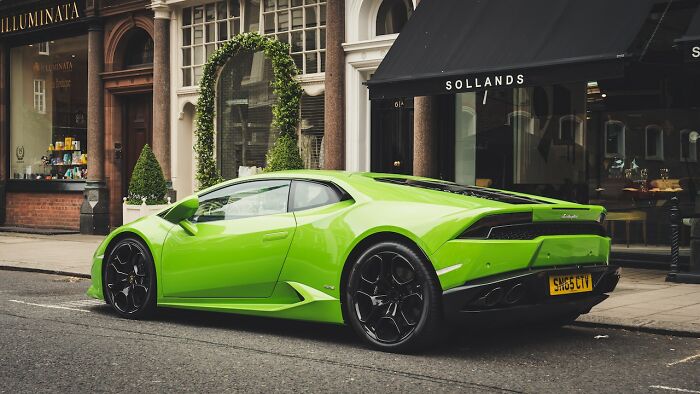 New rich buy gaudy bulls**t. They'll buy the lambo and make it chrome. They'll buy "Supreme" bullshit, they'll pay $10,000 for a pair of sneakers. Etc. They are all about status symbols, big jewelry, and brand names plastered on everything. They are the type to "leave the tags on" to "prove it's new" or some bullshit lol.
New rich buy gaudy bulls**t. They'll buy the lambo and make it chrome. They'll buy "Supreme" bullshit, they'll pay $10,000 for a pair of sneakers. Etc. They are all about status symbols, big jewelry, and brand names plastered on everything. They are the type to "leave the tags on" to "prove it's new" or some bullshit lol.
Leaving the tags on things does NOT make you look richer, it looks like your going to return it once the partys over
 SCREAMS NEW MONEY: "Wearing head-to-toe logo mania — only buying designer items that CLEARLY have the name front and center. For example, my roommate got a pair of Burberry track pants that are a bright blue, sports material, button up the side, with only 'Burberry' written above one of the back pockets. Super cute for her, but she was out with a guy wearing a Burberry button-down who made some slick comment about her being dressed down. She said, 'Well, we both got the Burberry memo,' and he was too stunned to speak lol.
SCREAMS NEW MONEY: "Wearing head-to-toe logo mania — only buying designer items that CLEARLY have the name front and center. For example, my roommate got a pair of Burberry track pants that are a bright blue, sports material, button up the side, with only 'Burberry' written above one of the back pockets. Super cute for her, but she was out with a guy wearing a Burberry button-down who made some slick comment about her being dressed down. She said, 'Well, we both got the Burberry memo,' and he was too stunned to speak lol.
Went to the mall 2 day. I saw a family of three all wearing designer. The mom's outfit was the worst, black tracksuit with ginormous Versace logos all over it, the daughter was wearing this hideous orange giant logo gucci dress and the husband had I little too much Louis Vuitton. It looked absolutely ridiculous
Throughout his research journey, which occasionally required going as an undercover millionaire, Samuel unearthed a captivating revelation: the realm of millionaires can be categorized into five distinct archetypes. Challenging the well-worn narrative of old money versus new money, Samuel concluded that this dichotomy has grown tiresome and oversimplified.
 WHISPERS OLD MONEY: "Connections would be the best way to insinuate old money. Being able to access back doors denied to other people, even if the individual was rich. Having relationships with other developed companies where favors could be found. An old money family would likely have a library of favors at their disposal, where problems could be easily solved by calling a number or making a passing comment.
WHISPERS OLD MONEY: "Connections would be the best way to insinuate old money. Being able to access back doors denied to other people, even if the individual was rich. Having relationships with other developed companies where favors could be found. An old money family would likely have a library of favors at their disposal, where problems could be easily solved by calling a number or making a passing comment.
 WHISPERS OLD MONEY: "There’s a sense of classism that is different — it’s less a disdain for the poor than a disdain for poor behavior. Old money has more respect for a middle-class family who represent themselves well in behavior and manners than a very wealthy family who make their wealth obvious. In my hometown, the old money would disapprove of the newly rich because the newly rich wanted to show everyone how wealthy they were. The old money were secure enough not to show off.
WHISPERS OLD MONEY: "There’s a sense of classism that is different — it’s less a disdain for the poor than a disdain for poor behavior. Old money has more respect for a middle-class family who represent themselves well in behavior and manners than a very wealthy family who make their wealth obvious. In my hometown, the old money would disapprove of the newly rich because the newly rich wanted to show everyone how wealthy they were. The old money were secure enough not to show off.
Many of you seem to be forgetting: you don't get to be Old Money if you act like New Money. You blow it all on s**t and go bankrupt. Look at almost every lottery winner.
Referred to as "Coolionaires" by Samuel, these individuals epitomize the notion of wealth intertwined with aesthetics. "Coolionaires have a deep desire to surround themselves with beautiful things and experiences, viewing their wealth as the opportunity to express their status as a person of refinement and sophistication. For them, wealth is the means to dwell in and show off their sense of taste, like picking up a Basquiat or Banksy while at Art Basel Miami Beach," he said.
Old money tend to never discuss money. If someone brings it up, they are masters at diverting the conversation.
I wish I had that kind of skill, not for money but just in general.
 SCREAMS NEW MONEY: "Telling every single person they come into contact with how much they spent on something. A former employer of mine told me he had to send in this $8,000 heater from his second plane for a $2,000 service because it didn't get hot anymore. Like, I'm struggling to keep a roof over my head and food on my table, and this is the shit you're telling me?!
SCREAMS NEW MONEY: "Telling every single person they come into contact with how much they spent on something. A former employer of mine told me he had to send in this $8,000 heater from his second plane for a $2,000 service because it didn't get hot anymore. Like, I'm struggling to keep a roof over my head and food on my table, and this is the shit you're telling me?!
Another intriguing category identified by Samuel is the group he calls "Wellionaires." As the name implies, these individuals prioritize channeling their riches towards nurturing their physical and mental well-being. "They use their wealth to convey to themselves and others that they are living lives in and of balance, perceiving a symbiotic relationship between themselves and the planet," Samuel said. They opt for vacation destinations abundant in nature, such as the Galapagos Islands or Machu Picchu, further emphasizing their inclination towards aligning with the natural world and fostering holistic well-being. Probably a regular at 'A-Fest', the annual super-elite, invite-only wellness festival.
 WHISPERS OLD MONEY: "Total comfort around domestic servants. Old money people have an incredible ability to treat the help as if they're part of the furniture; they will discuss deeply personal matters in front of the maid like it's no big deal. Middle-class families who hire a maid once a week will often be very awkward about having a conversation in front of them while they're working, while the rich are accustomed to having help.
WHISPERS OLD MONEY: "Total comfort around domestic servants. Old money people have an incredible ability to treat the help as if they're part of the furniture; they will discuss deeply personal matters in front of the maid like it's no big deal. Middle-class families who hire a maid once a week will often be very awkward about having a conversation in front of them while they're working, while the rich are accustomed to having help.
I feel awkward when anyone is over doing a job and I'm brewing coffee. I have to ask if they want some, too, or it feels rude.
 WHISPERS OLD MONEY: Adherence to old-school traditions and notions of politeness. I would get handwritten invitations to dinner at my friends' houses, and a handwritten thank-you note for any birthday or Christmas gifts, regardless of how little they cost. My rich friends are very big on thank-you notes, formal greetings, and never turning up to an event empty-handed. They always knew who you were supposed to tip and how much was appropriate. Again, I saw a lot more open snobbery in my hometown — my truly wealthy friends showed the same level of politeness with everyone
WHISPERS OLD MONEY: Adherence to old-school traditions and notions of politeness. I would get handwritten invitations to dinner at my friends' houses, and a handwritten thank-you note for any birthday or Christmas gifts, regardless of how little they cost. My rich friends are very big on thank-you notes, formal greetings, and never turning up to an event empty-handed. They always knew who you were supposed to tip and how much was appropriate. Again, I saw a lot more open snobbery in my hometown — my truly wealthy friends showed the same level of politeness with everyone
Good manners know no income levels. Writing thank you notes, sending sympathy cards, etc., is just good manners.
However, he found that "Thrillionaires" are the closest to "new money" rich. "I found most of the 'Thrillionaires' I encountered were less than enlightened people. The irony is that I saw no evidence that spending huge sums of money on mostly frivolous things and experiences made these folks any happier as, of course, there’s always something bigger or better to buy." The newly affluent millionaires, in particular, possessed considerable wealth but had yet to grasp the notion that fostering the welfare of others holds the key to personal fulfillment.
Old money runs the big charity events, new money gets to donate.
 WHISPERS OLD MONEY: "Fluency in another language is much more likely (due to a better general education). I'm from the UK, so we may have slightly different customs, but we have a lot of very old and wealthy families here with hereditary titles and historic family homes. In the UK, they'd usually be fluent in French or German. Knowledge of Latin and Greek used to be more common; your older family members will be better versed in these subjects, but it's still taught well in the public schools. The kids will not study dippy subjects at uni but will be encouraged towards things like law, medicine, and classics. If they are into music, they will go to a conservatoire. Even if they never intend to practice these things, it's mainly for their parents' approval, and so that they are not seen as academically mediocre.
WHISPERS OLD MONEY: "Fluency in another language is much more likely (due to a better general education). I'm from the UK, so we may have slightly different customs, but we have a lot of very old and wealthy families here with hereditary titles and historic family homes. In the UK, they'd usually be fluent in French or German. Knowledge of Latin and Greek used to be more common; your older family members will be better versed in these subjects, but it's still taught well in the public schools. The kids will not study dippy subjects at uni but will be encouraged towards things like law, medicine, and classics. If they are into music, they will go to a conservatoire. Even if they never intend to practice these things, it's mainly for their parents' approval, and so that they are not seen as academically mediocre.
"Many have to work hard in order to impress their parents and maintain their approval; this isn't because the parents are harsh, but usually because they are aware of their wealth and privilege and try to ensure the kids don't grow up too spoiled and entitled. Enforcing rigorous household rules, good manners, and humility and pushing for academic success is a good way to ensure that the children don't just get an easy ride to inherited wealth, and that they hopefully grow up polite and appreciative of what they have. This doesn't always work out, though.
This depends heavily on where you live. Where I am, there was no choice about learning French in school - it's literally the law. Families of any other cultural heritage all tend to speak at least three languages - generally, natal language at home, English with friends outside school, French in school.
Personality, then, is exactly what inspired Dr. Johannes König's expansive research on a millionaire's personality traits. "Since personality is a major determinant of people's way of thinking and because the rich are influential in business and in politics, it made sense to get a clear picture of the 'rich personality'," König explained to Bored Panda in an email, noting that no such large-scale study was previously done.
Whispers old money: The quality of the English and vocabulary used.
 SCREAMS NEW MONEY: "Flashy behavior. Old money WILL NOT flaunt it in an obvious way. New money often finds old money style to be boring — it is. It is deliberately boring because being tacky is déclassé. Anyone you see who evokes the response, 'Wow, I bet they’re rich' is almost certainly NOT old money
SCREAMS NEW MONEY: "Flashy behavior. Old money WILL NOT flaunt it in an obvious way. New money often finds old money style to be boring — it is. It is deliberately boring because being tacky is déclassé. Anyone you see who evokes the response, 'Wow, I bet they’re rich' is almost certainly NOT old money
Old Money families built empires they could pass down to their children and grandchildren. They wanted to keep the dynasty intact for future generations. A lot of New Money people are planning just the opposite. Some are quite vocal about the fact that "This is MY money - let my kids go out and make their own." Here is a very interesting list of rich people that will not pass fortunes to their kids: https://www.everplans.com/articles/10-rich-people-who-arent-leaving-their-fortunes-to-their-kids
"The fact that there is a distinct personality profile of the rich is very fascinating," he said. "It suggests that those with large societal influence think very differently compared to the rest of the population, which may be important for the political process." According to his findings, millionaires tend to be more risk-loving, more emotionally stable, more open to new experiences, more extroverted and more diligent.
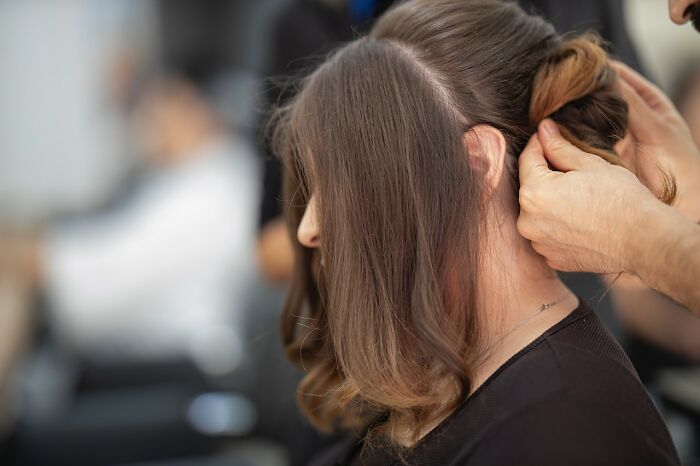 WHISPERS OLD MONEY: "Old money is impeccably kept, but in a different fashion — hair, clothes, skin are nice, but not obvious. Plastic surgery (the obvious kind) is gauche, as is dyeing one's hair long past the age where it is plausible. Less importance on perfectly done manicures — more emphasis on well-groomed nails and skin
WHISPERS OLD MONEY: "Old money is impeccably kept, but in a different fashion — hair, clothes, skin are nice, but not obvious. Plastic surgery (the obvious kind) is gauche, as is dyeing one's hair long past the age where it is plausible. Less importance on perfectly done manicures — more emphasis on well-groomed nails and skin
A person is entitled to dye their hair whenever they want, as long as they want. I never have, but why is it anyone else's business?
 WHISPERS OLD MONEY: "If they've attended an Ivy League school, they say the town or city where they went to school instead of the school's name. For example, if you say, 'Where did you go to school?' they would reply, 'New Haven' instead of Yale, or 'Cambridge' instead of Harvard
WHISPERS OLD MONEY: "If they've attended an Ivy League school, they say the town or city where they went to school instead of the school's name. For example, if you say, 'Where did you go to school?' they would reply, 'New Haven' instead of Yale, or 'Cambridge' instead of Harvard
I'm afraid it's another snobbish question. It's like being asked about your bank account. The real values that are important, for a member of a true old money family , are education, tradition and respect. If you want more details about someone's life, it's because you lack some of these values. Unfortunately, some people in these families forget these basics.
However, just like Samuel, König soon discovered a notable difference between those who made their wealth and those who inherited it. "The self-made rich were on average much more in agreement with the rich personality profile, while inheritors were much more like the non-rich population. This suggests that personality may be an important driver in self-made wealth creation," he explained. "Further, when people were more in agreement with the prototypical rich personality profile, they tended to be richer. This was true among the rich but also among the non-rich."
 SCREAMS NEW MONEY: "People who come into money quickly can have a tendency to go overboard. They get the biggest, best, shiniest everything. They aren't satisfied with the lifestyle. They used to be like you. Now they're better. It's not enough to be rich — they want you to know they're rich. That comes across as tacky and lacking in class.
SCREAMS NEW MONEY: "People who come into money quickly can have a tendency to go overboard. They get the biggest, best, shiniest everything. They aren't satisfied with the lifestyle. They used to be like you. Now they're better. It's not enough to be rich — they want you to know they're rich. That comes across as tacky and lacking in class.
 WHISPERS OLD MONEY: "Investing. Many old money families retain their wealth by being conservative (both with money and in other ways). Most of their members don't make exceptional money; they are lawyers or doctors earning good but not wild amounts of money. I imagine that they wouldn't go on heaps of expensive trips to places, but instead have a summer home that they go to for holidays. They would go to expensive private schools and drive secondhand cars. A lot of their hobbies would be based around property in the right places, like dressage or rowing — they aren't necessarily expensive sports, but they require a river or lake or land for horses
WHISPERS OLD MONEY: "Investing. Many old money families retain their wealth by being conservative (both with money and in other ways). Most of their members don't make exceptional money; they are lawyers or doctors earning good but not wild amounts of money. I imagine that they wouldn't go on heaps of expensive trips to places, but instead have a summer home that they go to for holidays. They would go to expensive private schools and drive secondhand cars. A lot of their hobbies would be based around property in the right places, like dressage or rowing — they aren't necessarily expensive sports, but they require a river or lake or land for horses
Screams new money: A green Lamborghini
Also screams bad taste. What ya wanna bet they can't drive a stick?!
 SCREAMS NEW MONEY: "A Range Rover sport. Totally misses the point — it's a classy vehicle dumbed down for the wrong type of owner.
SCREAMS NEW MONEY: "A Range Rover sport. Totally misses the point — it's a classy vehicle dumbed down for the wrong type of owner.
I know some children of very rich families and from just seeing them on the street you wouldn't think they were anything but normal teenagers. Other kids can be spoilt and just go for designer clothes.
 WHISPERS OLD MONEY: "I have noticed that my extremely wealthy friends have a slight discomfort or bemusement with establishments generally considered a bit down-market (places like McDonald's and ones in the UK like Poundland, Wetherspoons, etc.). hey are always extremely polite and usually able to get into the spirit of the thing, but I remember taking one woman on her first trip to McDonald's (at age 23) and the kind of awkward, slightly bewildered way she reacted.
WHISPERS OLD MONEY: "I have noticed that my extremely wealthy friends have a slight discomfort or bemusement with establishments generally considered a bit down-market (places like McDonald's and ones in the UK like Poundland, Wetherspoons, etc.). hey are always extremely polite and usually able to get into the spirit of the thing, but I remember taking one woman on her first trip to McDonald's (at age 23) and the kind of awkward, slightly bewildered way she reacted.
The thing about old money is that you probably know a lot of people from old money families, without knowing it. It isn’t flashy, the kids aren’t spoilt (or at least, are taught a solid work ethic), and in my experience it’s a lot less judgemental (seeing people/places as ‘below’ them). The reason old money exists in the first place is exactly because people aren’t flashy with it. They tend to live reasonably normal lives, it just turns out when you go round to visit they have a country manor with some horses in the stables.
 SCREAMS NEW MONEY: "An overall cocky attitude — because they are new to the whole scene. Old money is often synonymous with class, style, intelligent investing, etc., while new money is typically associated with rich jackasses who buy $300,000 cars with their first large sum of money attained and make other frivolous purchases
SCREAMS NEW MONEY: "An overall cocky attitude — because they are new to the whole scene. Old money is often synonymous with class, style, intelligent investing, etc., while new money is typically associated with rich jackasses who buy $300,000 cars with their first large sum of money attained and make other frivolous purchases
Screams new money: Diamond grills
 Whispers old money: Taking pride in family trees and family coats of arms. Also having family coats of arms in the first place - most people either don't have that or don't know what theirs is (you'd be surprised which surnames do have one)
Whispers old money: Taking pride in family trees and family coats of arms. Also having family coats of arms in the first place - most people either don't have that or don't know what theirs is (you'd be surprised which surnames do have one)
Only families have coats of arms. Surnames don't entitle you to use one.
Whispers old money: They probably own old real estate. Maybe a countryside mansion. That's probably the best symbol of it. This would of course be in addition to the hyper modern flat in the city.
Whispers old money: they have more leisure time- often “flying here, boating there, visiting friends” at the most random not vacation times as other people in society.
Interestingly enough smart (but not rich) people holiday in off peak times too. Avoiding peaks like Christmas (or pick your countries favourite holiday) mean you save money and have less competition for seats, accommodation etc. Depends on the type of holiday of course, since you can't snow ski without snow, or lay on the beach sunbaking if it's 3 degrees.
Whispers old money: Family nights out to the opera, to the childrens' performances (orchestras, choirs, ballet, etc.), and expensive family holidays skiing, safaris, etc. Much less likely to book a package holiday or cruise, more likely to arrange their own activities and stay in an expensive hotel with a lot of amenities. Quite likely to own a holiday home in a sunny country (in the UK this would usually be somewhere in Europe such as France or Spain) or a ski place, and very likely to own more than one family home in the UK. Normally this might be a place in the city (London) and a place in the country (likely Hampshire or Dorset) and they go between them. They are also likely to have some form of staff, usually not a 'full' set, but some combination of maid, gardener, cook, butler, or nanny. The children (when not at boarding school) may also have private tutors who come to their house to help them with various subjects.
Whispers old money: if they are in their mid 20s (so the kids), don't know when the rush hour is, look rested (no financial stress can see it on the eyes) and are relaxed
Like Lady Violet said in Downton Abbey, “What is a ‘weekend’?” Because every day (well, except Sunday) is a Saturday to someone like her.
Whispers old money: They might know about special vineyards that make rare but not necessarily famous or particularly expensive wines. Same kind of niche preferences may apply for food, music, whatever.
Screams new money: Maybe its because of where I live but those brand new lifted pickup trucks with the smoke stacks, light bars, etc. They don't scream billionaire money but when you have a 70k truck with a 12k lift kit, etc. you know the owner isn't exactly broke
If you have a 70k truck and you devalue it by putting ridiculous stacks behind the cab through the bed. Owner may not be broke, but he will be.
 WHISPERS OLD MONEY: They might be a real stickler for everyday expenses but still pay vast amounts for holidays or cars.
WHISPERS OLD MONEY: They might be a real stickler for everyday expenses but still pay vast amounts for holidays or cars.
 Whispers old money: Being well read/having seen many plays and such and also if there are kids/teenagers/young adults making them idealistic and ambitious which crosses over to a naivety based in a rich upbringing
Whispers old money: Being well read/having seen many plays and such and also if there are kids/teenagers/young adults making them idealistic and ambitious which crosses over to a naivety based in a rich upbringing
Whispers old money: Family name, knowing exactly where is it that one comes from, honoring the family name.
Whispers old money: Reference institutional links. For example knowing a prestigious judge, bankers or deans of universities, or with that, reference the links to OM characters as friends made through prestigious institutions like universities.
Old money children will also tend to be enrolled in a lot of activities such as musical instruments with a classical focus, orchestras, ballet, and of course typical sports of the gentry such as riding, shooting, fencing, lacrosse, rugby (which originated Rugby the public school). Adult men may be members of the fox hunt and the women will usually have a wide social circle and will be in charge of making the family's social arrangements (which are many, and many of which are a formality rather than something that anyone actually want to go to).
Only arseholes (rich or otherwise) have ties with the fox hunting scum
 SCREAMS NEW MONEY: "New money knows what it is like to be poor or middle class.
SCREAMS NEW MONEY: "New money knows what it is like to be poor or middle class.
 Whispers old money: they are wearing a custom suit is to unbutton one button on the cuff of the jacket
Whispers old money: they are wearing a custom suit is to unbutton one button on the cuff of the jacket
Not really.In fact , those who unbutton the last cuff button want to show, that it is a custom made suit. Similarly, having a jacket lining in bright colours - pink, green, blue - that don't exist in the shops is a way of showing that you're wearing a custom made suit. Although many people do it, it goes against the old money ethos of discretion. They'll wear a custom made suit with a grey lining, and button all the sleeve buttons, even if they're functional. The real 'old money' is used to custom suits enough that he'll see the difference between a classical suit, and a custom made, anyway, without anyone trying to rub his nose in it? Karl Lagerfeld, director of Chanel, once said: "I could recognise a Cifonelli shoulder from a hundred metres away" Cifonelli makes the best made-to-measure suits in Paris.
This article seems to present "old money" as classy and sophisticated without any criticism of the fact it's easy to be all of those things when you don't have any middleclass preoccupations. It just seems to underline that poor and middle class people can never even dream to belong to that class even if they do acquire wealth. Not only that, "new money" is seen in the most pejorative disdainful light because how dare they think acquiring wealth will allow them into this very elite exclusive circle that is "old money". Basically, classism wins regardless of whether or not you succeed financially, and this article very much supports that notion.
Seriously. Just gives a big 'How DARE these people SPEND the money they have EARNED in the way THEY want!?' vibes. Also completely ignores that New Money would have been middle-lower class before coming into wealth. They don't just poof into existence.
Load More Replies...And, for an instant, she stared directly into those soft blue eyes and knew, with an instinctive mammalian certainty, that the exceedingly rich were no longer even remotely human. --William Gibson
This article seems to present "old money" as classy and sophisticated without any criticism of the fact it's easy to be all of those things when you don't have any middleclass preoccupations. It just seems to underline that poor and middle class people can never even dream to belong to that class even if they do acquire wealth. Not only that, "new money" is seen in the most pejorative disdainful light because how dare they think acquiring wealth will allow them into this very elite exclusive circle that is "old money". Basically, classism wins regardless of whether or not you succeed financially, and this article very much supports that notion.
Seriously. Just gives a big 'How DARE these people SPEND the money they have EARNED in the way THEY want!?' vibes. Also completely ignores that New Money would have been middle-lower class before coming into wealth. They don't just poof into existence.
Load More Replies...And, for an instant, she stared directly into those soft blue eyes and knew, with an instinctive mammalian certainty, that the exceedingly rich were no longer even remotely human. --William Gibson

 Dark Mode
Dark Mode 

 No fees, cancel anytime
No fees, cancel anytime 


